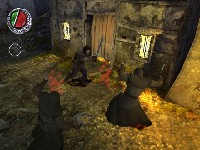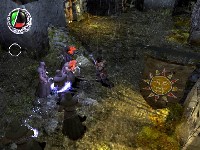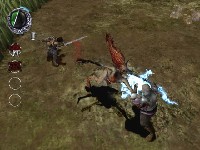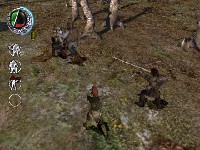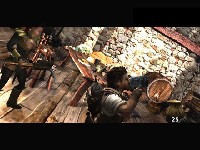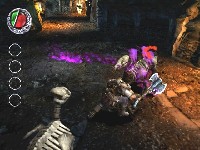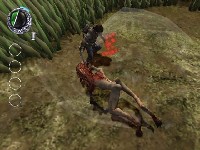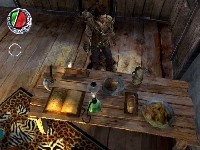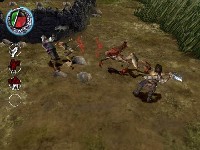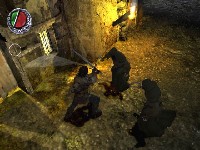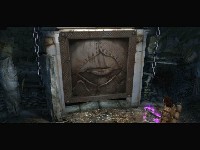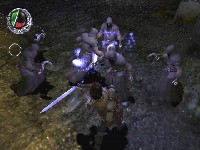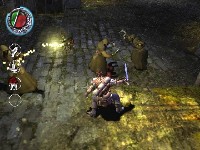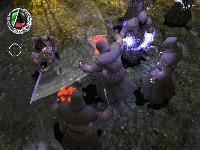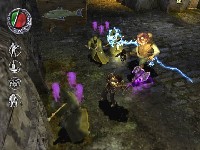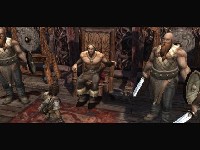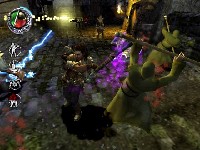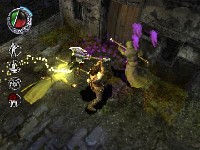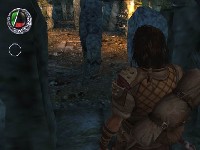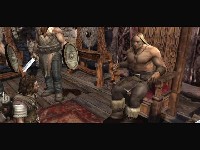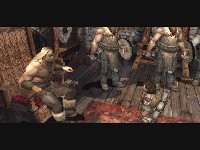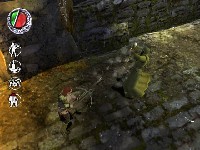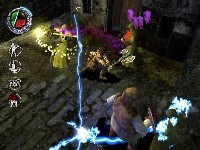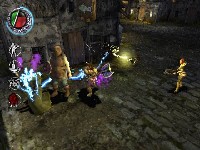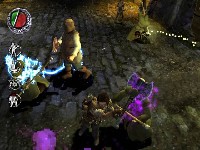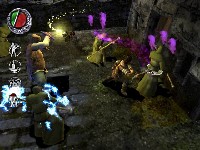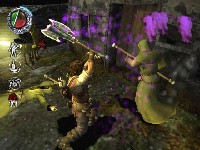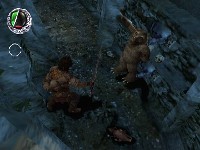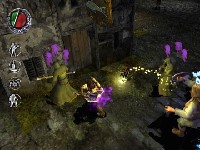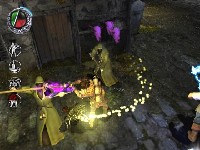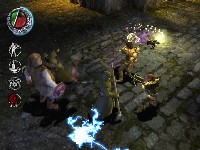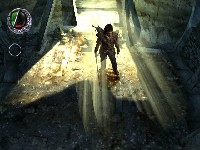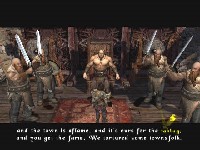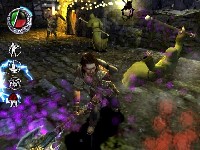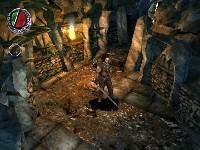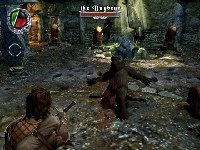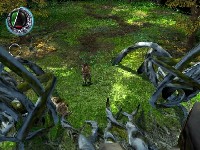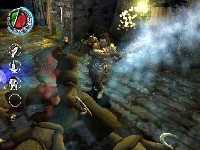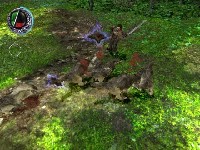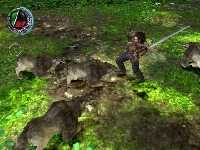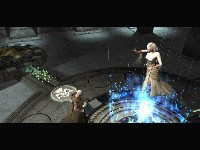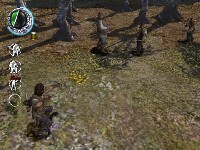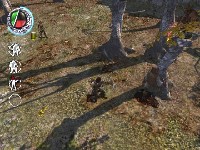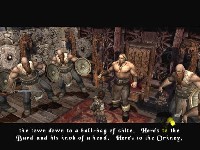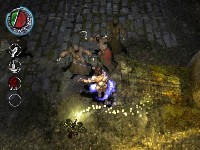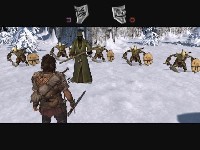Buy 'THE BARD'S TALE': Xbox | PlayStation 2
The Bard's Tale was an RPG in the '80s involving the bard, who tells about a group of adventurers who saved the town of Skara Brae, and it was this group of ragtag adventurers that the player controlled throughout their quest.
I played all three of the games when they came out and read the book series for a few years so I guess you could call me a fan. To say that I was ecstatic when I found out about The Bard's Tale being released for this console generation would be an understatement. I love the old games, just as I love the Wizardry and Ultima series, and The Bard's Tale games generated a very loyal following back when they were released.
After about two minutes of play, I noticed that this was not my Bard's Tale. Don't get me wrong here; I like this game, but it's more of an adventure game than a strict RPG. In the game, the bard is the central figure, which I found to be a little disconcerting, but after about 10 more minutes, I realized two things:
- It has sharp wit.
- It is a darn fine game.
The game is a top-down adventure across the Orkney Islands during a highly magical, and comical, time. Unlike the isles in the game, the actual Orkney Islands are off the northern tip of Scotland and severely lack forests, but this being a video game adventure, all that is water under the bridge.
Everyone in this game besides the bard speaks with a thick Scottish brogue. The bard, voiced by Cary Elwes (star of "The Princess Bride"), has a more refined accent, giving the impression of a traveling outsider. Conversations in this game are handled by cut scenes, with the bard selecting certain responses by choosing the "snarky" or "nice" option. Sometimes, there can be a better response by being rude or nice, depending on the character. Trust me, and be snarky to the barmaid.
There is one other character lacking the brogue that permeates this game, the narrator. The narrator is not only the guy who fills in the gaps in the story, but he also argues with the bard. Their exchanges left me in stitches, since both have a great sense of timing and can pull off great banter. Considering the fact that the narrator is voiced by Tony Jay, this is to be expected.
Graphically, this title is beautiful, with lush green forest and grass. The particular view is a little disorienting, but enjoyable in combat. With the summoned creatures, I found this game to be very similar to Diablo 2. The combat animations are great, and the cleavage is well-rendered … I mean, the characters are.
The music is moderately well done for this title. To go along with the characters' thick brogues, the music has a very Scottish feel to it. The best song is the beer song in the tavern, which I think will be entertaining to everyone. Every so often, parties around the bard introduce a new song. An example would be when creatures called Peerie Trow come up and sing, "It's Bad to be You" when a corpse is being looted.
Combat in this game is a mixture of ranged and melee combat with a smidgen of magic tossed in for flavor. There are four major styles of combat here, defined by which weapon class is being used. The four major classes of weapons are sword, flail, dirk (dagger, a really pointy knife), and two-handed. The sword is used with either a shield or a dirk, depending on if the bard is fighting in a two-weapon style. I tended to stay with the two weapons most of the time, since there seems to be a good balance between speed and damage, and I like the way it looks.
Magic is divided into two major classes: songs and artifacts. Artifacts require adder stones, but are the significant magical power in the game. Depending on the amount of adder stones expended, the power released by these artifacts can be quite significant. Songs, on the other hand, summon creatures to fight alongside the bard, with each song summoning a specific creature, like a rat or a behemoth. The number of creatures that can be summoned is controlled by how upgraded the bard's instrument is.
Another companion through the bard's travel is the dog - more of a puppy, really - which can be picked up early in the game and given the upgrade to learn how to fight. He also finds treasure and chases birds out of the brush.
Money in this game is the ubiquitous gold piece, standard in many an adventure. One of the nice things about the game is that excess loot and weapons are automatically transferred into gold, preventing time being wasted looking for someone to purchase all of the stuff adventurers can "acquire" throughout their travels.
After the first time through the game, the replay value diminishes significantly. Some of the jokes are funny, but the one thing that distinguished Diablo, the randomly created dungeons, does not exist in this title. The jokes tend to be funny, but the only way to get renewed gameplay is to answer all of the questions in the opposite manner from before.
The Bard's Tale, while unlike the original, is a fun time to be had. Some of the subject matter might be a little risqué for the younger audience, but for those who are of age, this title is a solid adventure with a great sense of humor.
Score: 8.7/10
More articles about The Bard's Tale













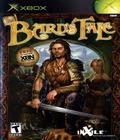 The Bard's Tale eschews RPG cliches in favor of intelligent humor for an original and truly entertaining experience.
The Bard's Tale eschews RPG cliches in favor of intelligent humor for an original and truly entertaining experience.